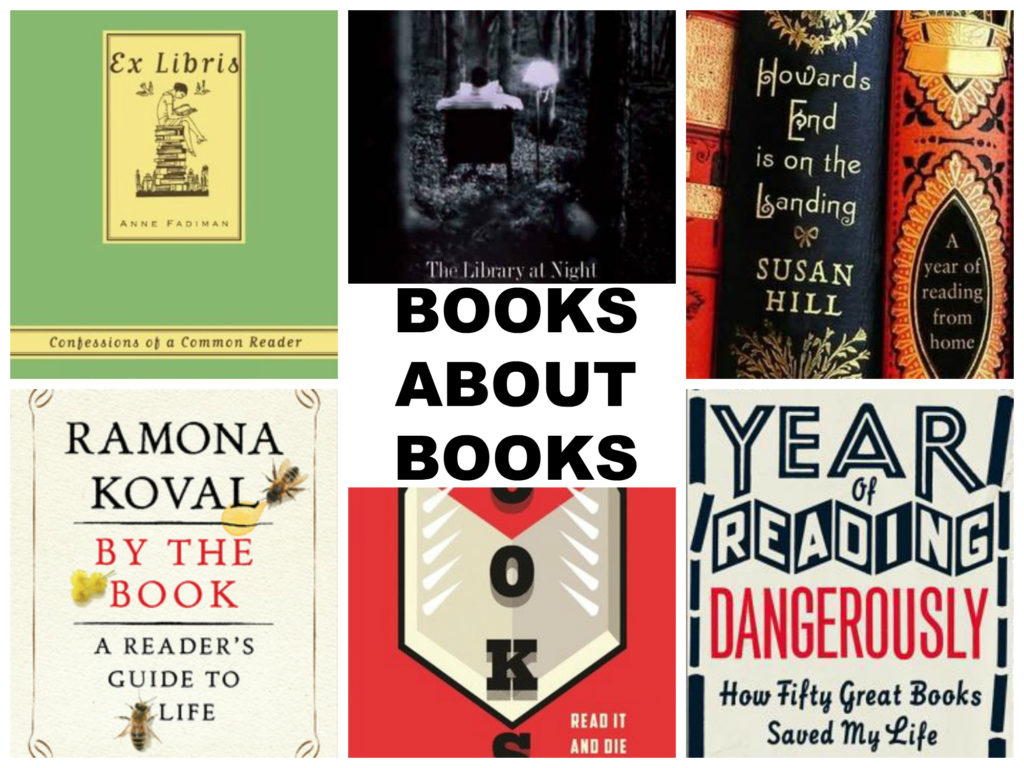As a passionate book lover, I am constantly thinking about books and finding ways to share my love with the world. When it comes to social media, Goodreads serves as a preferable substitution for Facebook and I have my blog as a platform to talk more about literature persistently. I even created a BookTube channel as another way to share my passion and meet like-minded people. While creating videos is not my preferred method of communication, it has been a beneficial tool in my personal development. I have even dabbled with the idea of creating a podcast. Suffice to say, I am passionate about literature and I am always looking for other ways to feed this addiction.
Other bibliophiles might also share my love for books about books. There is something so satisfying about reading a book about reading books. I first discovered this joy with The Shadow of the Wind, a wildly popular piece of translated fiction that had me wanting to adopt my own book. Not to mention the desire to gain access to something like the Cemetery of Forgotten Books. A positive for reading popular books is that it allows us the joys of finding other fans with ease but there is something deliciously delightful with finding a piece of literature that friends do not know about. For me, one of the biggest compliments I receive on my blog or BookTube channel is ‘I have never heard of this book before’. While it can be a source of frustration, it is thrilling to know I may have introduced someone to a new book. My frustration comes from those occasions when someone has not heard of a book that I would consider classics but that is a different essay topic.
Take, for example, the wildly entertaining satire, Books by Charlie Hill. The premise is based around a best-selling author whose book is so mediocre that when you read it your brain stops working. A neurologist recruits a grumpy indie bookseller to help her solve the mystery in this Dan Brown-esque dig at popular fiction. This hilarious book sadly never got any real attention, with under a hundred ratings on Goodreads. This is a little sad, especially since it described my idea of a perfect bookstore; “A bookshop full of long-forgotten noir fiction, modernist classics, chapbooks, transgressive experimentation, translated erotica, minimalism, short stories, satires, samizdat, surrealist poetry and smut.”

My love for books about books is not rooted in fiction, I am always on the lookout for a bibliomemoir – a memoir about someone’s reading life. I find the reading journey to be a captivating topic and exploring the way other people approach their own reading is like peeking into their personal book journals. I have read about all the books being read by journalist and politicians. I have read about people setting outlandish reading challenges and others that just challenge themselves to be better people. I am particularly fond of the unknown person (like a struggling author or blogger) who decides that their reading journey is interesting enough to get published.
Ramona Koval’s By the Book: A Reader’s Guide to Life was one of my first tastes into the bibliomemoir, and it was a charming account of growing up with books. It served as a literary account of her childhood, in which she shared memories like borrowing Franz Kafka from a library at a very young age and asking her mother to buy her a copy of the Kama Sutra. I keep a spreadsheet of all the books I have read but this does not hold the memories of the books. I have been writing essays about my reading life and literature as a way to preserve those memories. Not to mention I harbor a desire to write like Anne Fadiman; her bibliomemoir/collection of essays has been a constant source of inspiration.
The best bibliomemoirs are the ones that have a theme and that also cover books that interest the reader. I thought The Possessed: Adventures with Russian Books and the People Who Read Them by Elif Batuman would become a favourite of mine but it lacked the personal touch. While the book did cover Batuman’s life and interest in Russian literature, it was missing something. There are two sides of the bibliomemoir scale, a personal reading journey or literary criticism. I like both styles but if a book is lacking one or the other, I find it difficult to enjoy.
The Year of Reading Dangerously: How Fifty Great Books Saved My Life by Andy Miller is an example of a bibliomemoir that really hit the mark. In this memoir, Miller sets himself a challenge; to read all the books he had lied about reading. He created a list, The List of Betterment, which consisted of books he has once lied about reading or felt he should read. The book documents the rekindling of his former reading passion and hits both key factors I look for in a bibliomemoir, the personal journey and criticism. Andy Miller has since gone on to co-host a wonderful bookish podcast, Backlisted which I am currently obsessed with. I have even contemplated the idea of trying to read every book they have covered on the show, but first I should really re-read Andy Miller’s memoir.
I try to read as many bibliomemoirs as I can get my hands on because I often entertain the idea of writing my own. I think I have had an interesting journey and would love to share it with the world. I read the bibliomemoirs to find elements that work, so I can avoid the common slip-ups. Tolstoy and the Purple Chair: My Year of Magical Reading is a popular bibliomemoir but the idea of reading a book a day sounds dreadful. Quality over quantity is always a good rule to live by and I can pick the exact moment when I gave up on that book. It was when she refused to read her son’s favourite book, Watership Down because it was almost 500 pages.
The bibliomemoir does not have to follow the same format to be enjoyable, Alberto Manguel wrote a collection of essays about building a personal library called The Library at Night, which I adore. Susan Hill spent an entire book talking about the random books on her bookshelves in Howards End is on the Landing. I mentioned Anne Fadiman before but her collection of essays in Ex Libris is my definition of the perfect bibliomemoir. It gives glimpses into her life of reading but also talks about those common reader issues. Like the time her and her husband decided, after a few years of marriage, it was time to merge their books. Of course, I object to the idea of only keeping one copy of a book but the essay was enchanting. I am not saying keep all the pretty covers but a book contains memories, not to mention the different introductions or translations.
My most recent bibliomemoir was Books for Living by Will Schwalbe, which I am not particularly fond of but I did like that he dedicated each chapter to a book. For example, the chapter on What I Talk about When I Talk about Running was on the topic of napping. If you have read Haruki Murakami’s running memoir you would know that he shares his fondness for napping as well. When I read Murakiami’s memoir I did it to explore his passion but a passion for napping is something I can get behind. I will continue to dive into the world of the bookish memoir and hope to share some new favourites in the future. I would love to have some recommendations. One day I may have my own bibliomemoir; but in the meantime, I will practice my craft with more essays. Although my wife did suggest I should write a book about books about books, because that would be wonderfully meta.



I am a great fan of Fadiman and just listened to Ex-libris last month. I had read the book before, but the audio was well done.
I do have it as an audiobook too, because you never know when you’ll need some more Fadiman